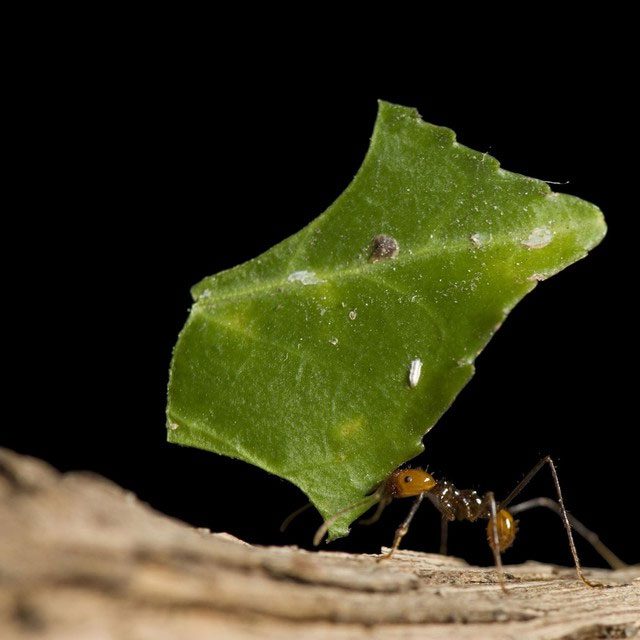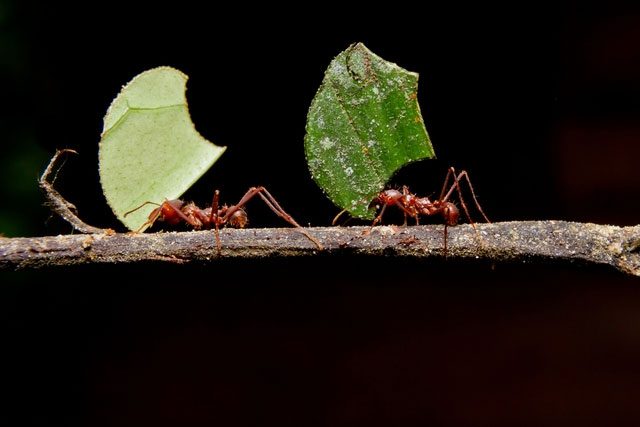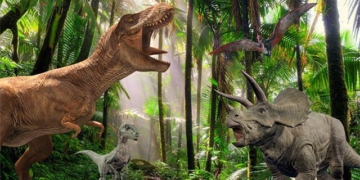A recent study by scientists has revealed surprising facts about ants. Not only are they diligent and organized creatures, ants may be the most evolutionarily perfected beings on Earth.
Researchers suggest that ants excel in certain areas compared to humans, such as construction engineering, agriculture, and “livestock management.” Their social systems not only help them compete better for survival but also create a rich gene pool, making them an indispensable part of the ecosystem.
Upon examining the results of this study, many have drawn parallels between the evolution and socialization of humans and ants. Comparing these two species opens up intriguing perspectives on what we can learn from nature, especially from ants.

Ants are recognized as “perfect” engineers in nature.
Ants have long been known for their diligence and intelligence, but now they are seen as “perfect” engineers in nature. Their efficiency and skills in construction, agriculture, and livestock husbandry have left many scientists in admiration.
Construction Techniques
Ants are famous for their efficient and sustainable nest-building abilities. During the nesting process, they use substances secreted by their own bodies to bind soil particles together. Ant nests, despite their small size, are incredibly complex structures. They serve not only as shelters but also fulfill all the living needs of the entire colony. Their ability to create sturdy constructions with “natural techniques” makes them regarded as skilled designers in the animal kingdom.

Ants also have impressive “agricultural farming” abilities.
Ant Agriculture
Not stopping at construction, ants also possess remarkable “agricultural farming” skills. They cultivate and care for certain types of fungi or plants around the nest to create a food source for the entire colony. These plants are meticulously managed and nurtured by ants, similar to how humans grow vegetables and tend to crops. When the leaves or fungi grow large enough, they become a rich food source for the whole colony. This can be seen as a clear example of how ants utilize their environment to sustain themselves without the need for complex tools or machinery.
Livestock Management: The Ingenuity of Ants
Not only do they know how to cultivate, but ants also have “livestock management skills” comparable to humans. Some ant species “farm” aphids, not to eat them, but to harvest the sweet substance secreted by the aphids. To ensure the safety of these aphids, ants protect them from predators and create a favorable environment for them to reproduce. This is akin to how humans raise livestock and collect products from them. The perfect cooperation between ants and these “herds of aphids” is a clear testament to the organizational and managerial prowess of ants.

Some ant species “farm” aphids, not to eat them, but to harvest the sweet substance secreted by the aphids.
Through the research of scientists, the “perfect gene” of ants has inspired humans, especially regarding social organization and evolution. Ant societies are not only robust but also develop in a symbiotic direction, thriving together. Each individual in the colony has its own role but prioritizes the welfare of the entire colony. This enables ants to easily adapt to their environment and overcome survival challenges.
To some extent, humans are also “social animals.” We live and work within social systems, and collaboration among individuals in society is a key factor in human progress. However, unlike ants, humans exhibit genetic and personality differences, which sometimes hinder us from achieving the same level of organization and cohesion as ants. Nevertheless, these differences contribute to the diversity and richness of human society.

Scientists and engineers can learn from ants to design energy-efficient buildings.
In addition to their social aspects, ants provide valuable lessons for humans in fields such as construction, agriculture, and livestock management.
The structure of ant nests, with their ability to support and optimize space, serves as a significant inspiration for modern architecture. Scientists and engineers can learn from ants to design energy-efficient, environmentally friendly buildings capable of withstanding natural phenomena like storms and earthquakes.
The way ants cultivate fungi or “care for crops” around their nests also suggests sustainable agricultural models for humans. Instead of large-scale farming that impacts the environment, we could adopt ant-inspired agricultural production models, where crops are naturally cared for without excessive human intervention.
The livestock management skills of ants, through their farming of aphids and protection from threats, could inspire the development of environmentally friendly livestock management models. Instead of raising livestock in industrial settings, we could allow them to flourish in natural environments, thus producing healthier products for humans.

From construction to agriculture and livestock, ants demonstrate remarkable ingenuity and efficiency.
The evolution and social organization of ants have provided numerous valuable lessons for humans. From construction and agriculture to livestock management, ants showcase exceptional ingenuity and efficiency in leveraging natural resources. They are not only small creatures but also play a crucial role in the global ecosystem. Humans, with their intelligence and creativity, can learn from ants to develop various fields while gaining a deeper understanding of biological evolution and the harmonious relationship between humans and nature.
Ultimately, ants are not just symbols of hard work; they are evidence of nature’s perfect evolution. A profound understanding of them could help humanity build a more sustainable society that harmonizes better with nature.





















































